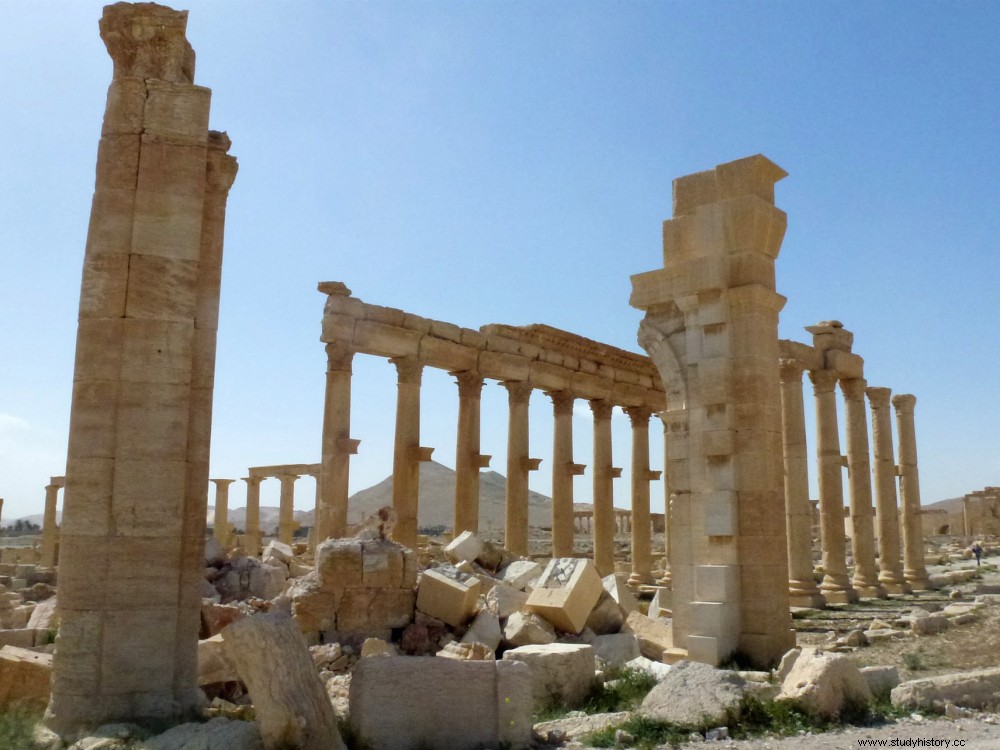The Syrian city of Palmyra, and its 2,000-year-old ancient city, was taken over this weekend by Daesh jihadists.

The ruins of the city of Palmyra in Syria, March 27, 2016.
This weekend, after a succession of contradictory information, the governor of the province of Homs (Syria), ended up confirming on Syrian state television that elements of the terrorist group Islamic State (IS) have indeed taken over arms Palmyra, a city listed as a World Heritage Site, after forcing government troops to withdraw. They had however regained possession of it in March 2016 with the support of Russia. This Daesh offensive was launched on Thursday, December 8, according to the Syrian Observatory for Human Rights (OSDH). During the night of Saturday to Sunday December 10, for a few hours, a wave of raids carried out by the Russian air force had suggested a withdrawal of the jihadists.
We remember that the Islamic State, which seized the city of Palmyra in May 2015, had committed numerous abuses and destruction there, by blowing up several temples, such as those of Bêl and Baalshamin. Analysts say IS's return to Palmyra comes after a year of setbacks in Syria and Iraq, just as the Syrian army is tightening its grip on eastern Aleppo. By recapturing Palmyra, IS demonstrates that it retains the ability to carry out large attacks despite significant losses on the ground. Maamoun Abdulkarim, head of Syrian Antiquities, said his ministry was able to transfer the museum's contents from Palmyra to Damascus, but it again feared for the safety of the famous ruins. After Abu Dhabi (United Arab Emirates), where France presented on December 2 and 3, 2016, at an international conference on heritage in danger, its project to protect cultural heritage threatened by "barbarism", and two days before the inauguration in Paris on December 14 of the Eternal Sites exhibition at the Grand Palais, this recovery of the city of Palmyre proves how much important all projects to safeguard heritage sites in danger.
(with AFP)
